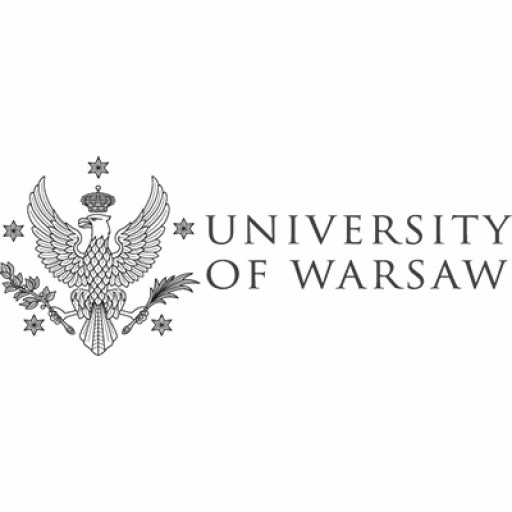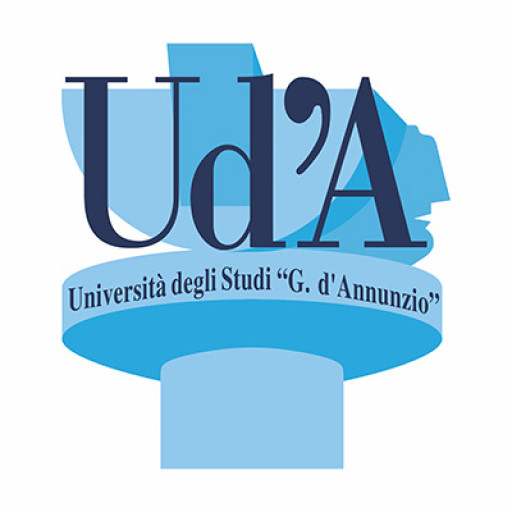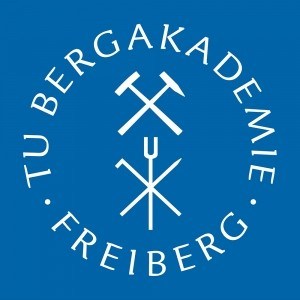Photos of university / #uniwersytetwarszawski
Development Economics at the University of Warsaw offers a comprehensive and in-depth exploration of the economic processes that influence the development of low- and middle-income countries around the world. This interdisciplinary program is designed to equip students with the theoretical knowledge and practical skills necessary to understand, analyze, and address the complex challenges faced by developing nations. The curriculum covers a wide range of topics, including economic growth, poverty alleviation, inequality, sustainable development, international trade, foreign aid, and the role of institutions and governance in development processes. Students will study both classical and modern economic theories, complemented by insights from political science, sociology, and environmental studies, to foster a holistic understanding of development issues. The program emphasizes empirical research methods, including econometrics and data analysis, enabling students to assess development programs and policies critically. Through a variety of lectures, seminars, case studies, and research projects, students acquire the analytical tools needed to formulate effective policies and contribute to international development efforts. The diverse faculty, composed of experienced researchers and practitioners, ensures that students are engaged with current debates and real-world applications. Graduates of the Development Economics program are well-prepared for careers in international organizations, governmental agencies, non-governmental organizations, research institutes, and the private sector, where they can apply their expertise to promote economic stability, social progress, and sustainable development in developing countries. The University of Warsaw’s inclusive academic environment fosters critical thinking, innovation, and cross-cultural understanding, making this program an ideal choice for students passionate about making a positive impact on global development issues.
The Development Economics programme at the University of Warsaw offers students an in-depth understanding of the economic, social, and political factors that influence the process of development in emerging and developing countries. This comprehensive curriculum is designed to equip students with theoretical knowledge and practical skills necessary to analyze development challenges and implement effective solutions. Throughout the program, students explore key topics such as economic growth, poverty reduction, income inequality, global trade, sustainable development, and the role of international financial institutions. They also examine macroeconomic and microeconomic theories, as well as empirical methods to assess development policies.
The programme emphasizes interdisciplinary approaches, integrating insights from economics, sociology, political science, and environmental studies to provide a well-rounded perspective on development issues. Students gain proficiency in quantitative and qualitative research methods, enabling them to conduct independent analyses and contribute to policy debates. The coursework includes lectures, seminars, case studies, and project work, fostering active engagement and practical application of theoretical concepts.
Furthermore, students have the opportunity to learn from experienced faculty members involved in international development projects and research. The programme encourages active participation in internships, workshops, and conferences to enhance practical skills and build professional networks. Graduates of the Development Economics programme are prepared for careers in international organizations, governmental agencies, non-governmental organizations, research institutes, and private sector companies involved in development activities. They are equipped to analyze development strategies, design policy measures, and contribute to sustainable and inclusive economic growth worldwide. The University of Warsaw’s Development Economics programme aims to cultivate informed, responsible, and innovative development experts committed to making a positive impact on global development processes.
The Development Economics programme at the University of Warsaw requires applicants to demonstrate a solid foundation in economics, quantitative methods, and social sciences. Prospective students should hold a high school diploma or equivalent that meets the university's admissions standards. The curriculum emphasizes a multidisciplinary approach to understanding economic development, encompassing areas such as macroeconomics, microeconomics, international trade, public policy, and sustainable development. Applicants with background knowledge in mathematics and statistics are preferred, as these skills are essential for engaging with the quantitative aspects of the programme.
Admission criteria typically include the evaluation of academic records, motivation letter, and, in some cases, entrance examinations or interviews. Candidates are expected to have proficiency in English, demonstrated through standardized language tests such as TOEFL or IELTS, or by prior education in English-medium institutions. The programme prerequisites also involve the completion of specific courses at the secondary education level, like mathematics, economics, and social studies, to ensure students are prepared for the rigorous coursework ahead.
Students enrolling in the Development Economics programme are required to complete core courses in economic theory, development policy, and research methods. Elective courses allow specialization in various fields such as agricultural economics, health economics, environmental economics, and regional development. Practical skills are cultivated through seminars, workshops, and project work, often involving case studies and field research. To graduate, students must earn a specified number of credits as dictated by the university's academic regulations, including a final thesis that demonstrates their ability to apply theoretical knowledge to real-world development issues.
The programme encourages international mobility and collaboration, often involving exchange opportunities with partner universities abroad. Successful completion of the degree signifies a comprehensive understanding of the principles and challenges of economic development globally and equips graduates with analytical and policy-making skills suitable for careers in government, international organizations, research institutes, and NGOs.
The financing of the Development Economics program at the University of Warsaw is primarily conducted through a combination of sources to ensure the sustainability and accessibility of the program. The main funding originates from governmental support provided by the Ministry of Education and Science, which allocates national funds to public universities based on various criteria, including program quality, student enrollment numbers, and strategic priorities. These funds cover the core operational costs, including faculty salaries, educational materials, and administrative expenses.
In addition to government funding, the University of Warsaw secures resources through European Union grants aimed at promoting higher education and research excellence. These grants support specific research projects, infrastructure development, and international collaboration initiatives relevant to Development Economics. The university also encourages students to apply for scholarships and financial aid programs designed to assist both domestic and international students. These include government-funded scholarships, university-specific grants, and external funding opportunities provided by various foundations and international organizations.
Tuition fees constitute a significant part of the program's organization for students from non-European Union countries or those enrolled in paid study programs. The fee levels are determined annually and are specified on the university’s official website. The revenue generated from tuition fees is reinvested into improving the program's quality, expanding facilities, and developing new teaching methodologies.
Fundraising activities and partnerships with the private sector also contribute to the program's financing. The university collaborates with businesses, NGOs, and international agencies to facilitate internships, research sponsorships, and seminar series, which enhance the educational experience and provide additional funding streams.
Furthermore, the development of online learning modules and international joint programs aims to diversify funding sources and attract students from abroad, thus increasing financial stability. As part of its strategic plan, the University of Warsaw emphasizes sustainable financing models that balance public funding, external grants, and income-generating activities to continually enhance the Development Economics program.
Overall, the financing of the Development Economics program relies on a multifaceted approach, leveraging government support, EU funds, student fees, and external partnerships to ensure high-quality education and research in line with the university’s academic standards and strategic goals.
Development Economics at the University of Warsaw is a comprehensive programme designed to equip students with a deep understanding of economic development theories, policies, and practices suitable for application in emerging and developing countries. The program emphasizes core principles of economics, including microeconomics and macroeconomics, alongside specialized courses focused on development issues such as poverty alleviation, inequality, sustainable growth, international trade, and investment. Students learn to analyze complex economic problems in developing countries, apply quantitative methods, and critically evaluate policy options to promote economic growth and social welfare.
The curriculum integrates theoretical knowledge with practical skills through case studies, simulations, and project-based learning. Students are encouraged to develop a multidisciplinary perspective, incorporating insights from political science, sociology, and environmental studies to understand the multifaceted nature of development challenges. The programme also emphasizes the importance of empirical research and data analysis, providing training in statistical software and econometrics to enable students to conduct rigorous research.
The university offers lectures delivered by experienced academics and practitioners in the field of development economics, fostering an engaging learning environment. The programme may include internships or cooperation with international organizations, NGOs, or governmental agencies, providing students with valuable practical experience and networking opportunities. Graduates of the programme are prepared for careers in international development agencies, research institutions, governmental departments, or NGOs working on development projects.
Students are encouraged to participate in various seminars, workshops, and conferences that enhance their understanding of global development issues and allow them to engage with experts and practitioners. Additionally, the programme promotes critical thinking and ethical considerations in economic development, aiming to develop responsible professionals capable of contributing to sustainable development policies and initiatives.
The language of instruction for the programme is primarily English, facilitating international cooperation and mobility. Admission requirements typically include a relevant bachelor's degree, proficient English language skills, and motivation to work in the field of development economics. The duration of the programme is generally two years for full-time students, with options for part-time study depending on the university’s offerings.
Overall, the Development Economics programme at the University of Warsaw prepares students for effective participation in solving development challenges, offering a rigorous academic framework combined with practical skills and global perspectives. It aims to produce graduates who are well-equipped to analyze, design, and implement policies that foster sustainable economic growth and social progress in developing countries and emerging economies around the world.









